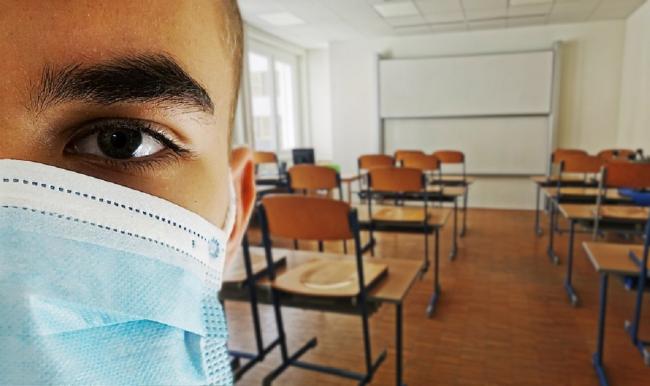
As more children in Wales return to school for onsite learning on Monday 15 March, NSPCC Cymru/Wales has spokespeople available to offer advice on how children can be best supported and the long-term support that will be required to help them recover from the last 12 months.
The school environment is important for education, safeguarding and children’s wellbeing. Although the return to face-to-face learning and being able to see friends again will be a move welcomed by many children and their families, it won’t be the same for everyone. Some will feel nervous about the pandemic or worried about how well they have kept up with school work, and others will be dealing with poor mental health, the impact of strained family relationships, abuse, neglect, or bereavement.
Children’s resilience over the last year needs to be recognised, but additional support will need to be available for those that need it in the short, medium and long term. It’s why we’ve outlined what we think is needed by the next Welsh Government to ensure children are protected, and supported to recover and reconnect. This includes:
- Support to speak out – ensure children can speak out, so they feel safe, heard and understood, and have access to support services to recover from abuse. Equip adults with the knowledge and skills to take action when a child makes a disclosure.
- Mental health support – more children get the mental health support and help they need to recover.
- Improved online safety – ensuring every child in Wales is aware of and supported to realise their right to be safe online. And, a concerted approach to disrupt online abuse via UK-wide Online Harms legislation and enhanced prevention through a robust Wales Child Safety Online Action Plan.
Vivienne Laing, Policy & Public Affairs Manager for NSPCC Cymru/Wales says: “The school environment is important for education, safeguarding and children’s wellbeing, but the transition back to face-to-face learning won’t be easy for everyone.
“Whole communities need to be ready to support a generation of young people who have faced increased risks of abuse at home and online.
“Schools must be equipped to recognise and respond sensitively to children who have had traumatic experiences in lockdown – and adequate funding must be available to ensure that pupils get the support they need, whichever school in Wales they go to.”
Victoria Holbrook-Hughes, Team Manager for Childline Prestatyn says: “Mental health and emotional wellbeing has been the biggest concern raised by young people contacting our Childline service since the start of the pandemic, with some highlighting difficulties in accessing support.
“Protecting children requires long-term investment so that children from every area of Wales can benefit from early mental health support, however we all have a role to play in supporting children, preventing problems from escalating, and keeping them safe.
“As more children return to their classrooms, parents and carers can let them know they’re not alone by listening to how they feel and talking through concerns they may have.”
Support for parents and children
- Preparing children for returning to the classroom.
- How to talk to a child worried about going back to school.
- Supporting children’s mental health.
- Support for worried adults.
- Let Children Know You Are Listening.
- Contacting Childline (over 12s). Contacting Childline (over 12s) in Welsh language.
- Contacting Childline (under 12s). Contacting Childline (under 12s) in Welsh language.
Stats
- More than 60,000 Childline counselling sessions have been held with children UK-wide about their mental health since the first national lockdown, as well as more than 20,000 sessions about suicidal thoughts and feelings.
- The NSPCC helpline (for adults) is receiving an average of more than 30 contacts a day from adults across the UK worried about children living with domestic abuse.
- The number of referrals about parental substance misuse made by the NSPCC helpline to agencies across Wales has increased by more than 70% since the start of the pandemic. Referrals are made to external agencies such as the police and children’s services when concerns reported to the helpline are considered to be serious enough to warrant further investigation.
Children can contact Childline every day of the week on 0800 11 11. Or they can get in touch via childline.org.uk where 1-2-1 chats can be requested.
Anyone with any concerns about the welfare of a child can call the NSPCC Helpline on 0808 800 5000 or visit nspcc.org.uk for advice.
Help keep news FREE for our readers
Supporting your local community newspaper/online news outlet is crucial now more than ever. If you believe in independent journalism, then consider making a valuable contribution by making a one-time or monthly donation. We operate in rural areas where providing unbiased news can be challenging. Read More About Supporting The West Wales Chronicle

























